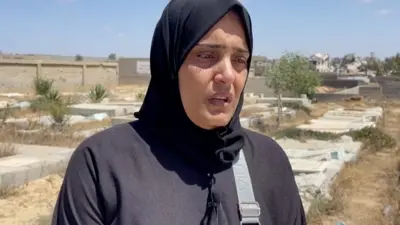We've updated our Privacy and Cookies Policy
We've made some important changes to our Privacy and Cookies Policy and we want you to know what this means for you and your data.
Northern Ireland homelessness 'up by third' in five years
Image source, Getty Images
The number of people deemed homeless has increased by 32% in the last five years, according to the Northern Ireland Audit Office.
The report examines the problem and the action the government is taking to address it.
Between 2012 and 2017 homelessness in Northern Ireland cost about £300m, the report found.
Nearly 12,000 households - individuals and families - were accepted as homeless in 2016/17.
The Northern Ireland Housing Executive (NIHE)'s strategy aimed at reducing homelessness has had "limited success," the report found.
The strategy was endorsed and monitored by the Department for Communities (DfC).
The report showed a contrast between homelessness figures and the latest figures on rough sleeping.
Figures showed an average of six people sleep rough each night in Belfast.
'Disproportionately higher'
However the Head of the Northern Ireland Audit Office, Kieran Donnelly, said homelessness was about more than rough sleeping:
"Contrary to popular belief homelessness is not restricted to people who sleep rough, it encompasses a much wider range of individuals in a variety of circumstances", he said.
The report found the figures were "disproportionately higher" in Northern Ireland than other regions of the UK.
The DfC and NIHE have put forward a number of reasons for this but they are "not supported by evidence," says the report.
It says NIHE deals with those who are homeless almost exclusively by providing them with a social rented home.
As a result around 80% of social homes that become available across Northern Ireland are allocated to households designated as statutory homeless.
"There is no doubt that the social costs of homelessness are significant but would be far greater without this public expenditure," said Mr Donnelly.
Why are households losing their homes?
- 31% accommodation not reasonable
- 18% sharing breakdown/family dispute
- 13% loss of rented accommodation
The report concluded that the NIHE was "unable to fully demonstrate the impact of its work in reducing homelessness".
It added that the NIHE needs to be more "innovative in its collection, analysis and interpretation of homelessness data".
This includes research to determine why the level of statutory homeless acceptances are higher in Northern Ireland and regularly monitoring and measuring the extent of rough sleeping across Northern Ireland.
'Recommendations'
In addition, to improve accountability and transparency the DfC should expand the statistical datasets that it publishes.
The report recommends an in-depth cross-departmental review to be jointly commissioned to identify and quantify health-related support needs for homelessness service providers and homeless households.
Mr Donnelly also recommended that "the framework for addressing homelessness should be developed in an integrated way with an emphasis on outcomes rather than existing departmental structures".
A Department for Communities spokesperson said: "The department continues to work closely with the Housing Executive and other key partners across government and within the voluntary and community sector on preventing homelessness, and tackling homelessness where it occurs."
A NIHE spokesperson said the report was "welcomed".
"Actions to address some of the recommendations within the report are included in our current homelessness strategy Ending Homelessness Together, which was published in April of this year," they added.
The director of the charity Housing Rights, Janet Hunter, said the "stereotype" that homelessness is about rough sleeping was wrong
"It is not just about rough sleeping. It's about much much more than that," she said.
"The fundamental issue is that of supply - we need more homes that people can afford to live in."
Top Stories
Features & Analysis
Most read
Content is not available








